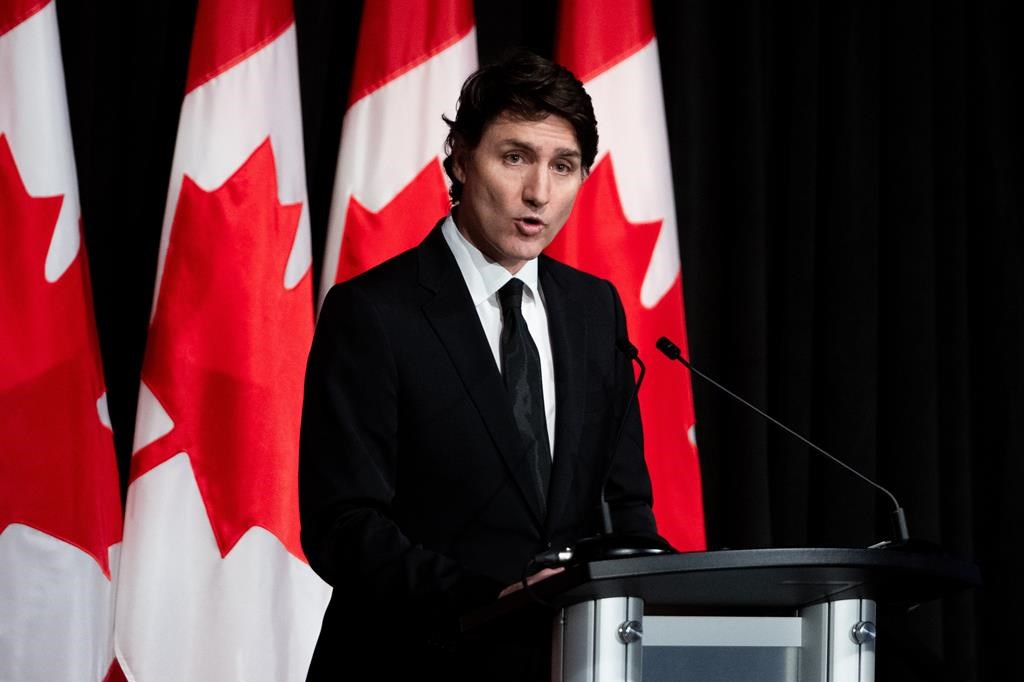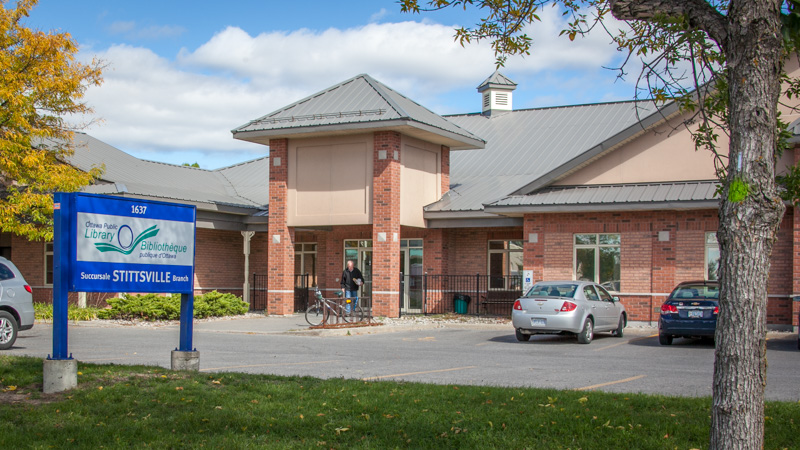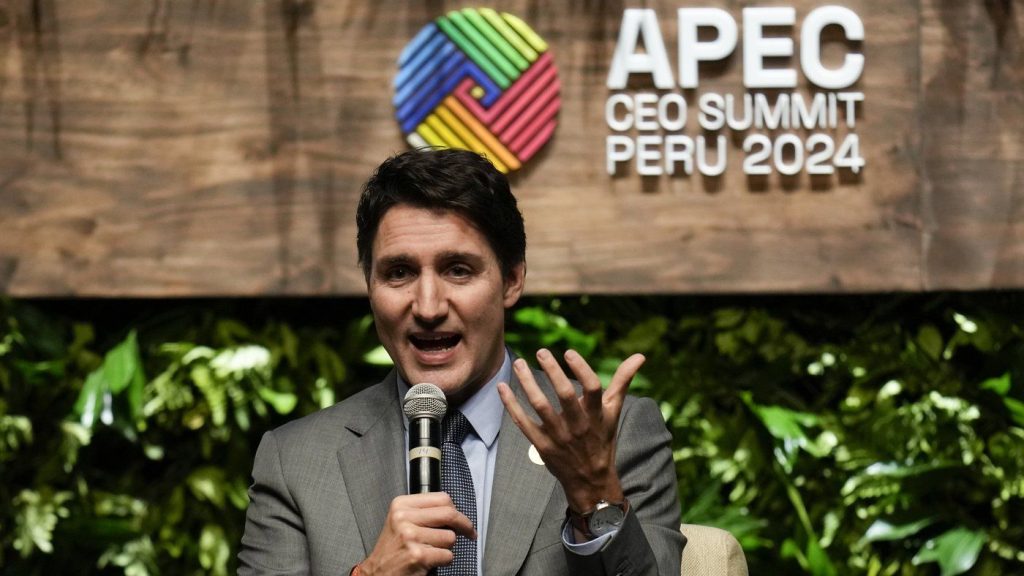Iran’s attack risks provoking ‘uncontrollable regional escalation,’ G7 countries warn

Posted Apr 14, 2024 09:53:15 AM.
Last Updated Apr 14, 2024 08:40:11 PM.
OTTAWA — Iran’s weekend attack on Israel marks a further step toward destabilization of the Middle East and risks provoking “an uncontrollable regional escalation,” leaders from Canada and the other G7 countries said Sunday after convening by video conference.
The leaders of the Group of Seven advanced democracies unequivocally condemned Iran’s decision to target Israel with hundreds of drones and missiles “in the strongest terms,” calling it a “direct and unprecedented attack.”
Israel, with the help of allies, largely managed to thwart the barrage, which caused minimal damage.
“We express our full solidarity and support to Israel and its people and reaffirm our commitment towards its security,” said the G7 leaders’ statement, released by the office of Prime Minister Justin Trudeau.
“We will continue to work to stabilize the situation and avoid further escalation. In this spirit, we demand that Iran and its proxies cease their attacks, and we stand ready to take further measures now and in response to further destabilizing initiatives.”
U.S. President Joe Biden earlier said he would convene the meeting to co-ordinate a united diplomatic response to an attack he described as brazen.
Iran launched around 300 missiles and drones at targets inside Israel, but Israeli officials say the country and its allies were able to intercept about 99 per cent of them. Iran has since declared the operation over.
Defence Minister Bill Blair said Sunday on X, formerly Twitter, that he was receiving regular updates from the Canadian Forces “and will continue to monitor the situation closely.”
Iddo Moed, Israel’s ambassador to Canada, said late Sunday that while his country does not want war, it will respond with the aim of ensuring Tehran does not strike again.
Canada’s political parties were united in condemning Iran after the overnight offensive.
Trudeau said Canada denounces the attack in a region already embroiled in a six-month-long war between Israel and Hamas.
“These attacks demonstrate yet again the Iranian regime’s disregard for peace and stability in the region,” Trudeau said in a statement released shortly after the offensive got underway. “We support Israel’s right to defend itself and its people from these attacks.”
Conflict between Israel and Iran heightened after an airstrike blamed on Israel destroyed Iran’s consulate in Syria and killed two Iranian generals. Tehran vowed revenge.
Israel closed its airspace Saturday in anticipation of Iran’s attacks and by early Sunday, booms and air-raid sirens sounded across the country.
The Israeli military’s spokesman, Rear Adm. Daniel Hagari, said Iran fired scores of drones, cruise missiles and ballistic missiles — with the vast majority intercepted outside Israel’s borders.
In Washington, Biden said U.S. forces helped Israel down “nearly all” the drones and missiles. U.K. Prime Minister Rishi Sunak said Britain’s air force shot down a number of Iranian drones.
Leah Appel woke up at around 1:45 a.m. Sunday to feel the volleys rattling her Jerusalem apartment building.
“It felt like 1,000-ton weights had been dropped in the apartment above our apartment and our whole room was shaking,” the native of Montreal said in a phone iterview.
“I said to (my husband, Moshe), ‘What is that?’ He opened the window, and there was just fire in the sky.”
That’s when the sirens began and the couple and their two children took a packed bag of clothes, food and essentials down to the apartment’s bomb shelter.
Francis Weil, president of the Moncton Jewish Community, said Sunday he has relatives in Jerusalem and Netanya, on the Mediterranean shore.
“Last night they were sending messages saying that they were frightened, but this morning they feel much, much relief and they feel a big, big weight off their shoulders,” he said.
In Tehran, news of the assault on Israel came as a surprise to Alireza Ghandchi.
The Richmond Hill, Ont., resident, who is visiting his parents, said the mood was fearful, with concern a retaliatory attack by Israel would be carried out at night.
“The people are tense and they are worried about Israel’s attack,” he said. “I hope things calm down.”
Israel and Iran have been on a collision course throughout Israel’s war against Hamas militants in Gaza.
In the Oct. 7 attack that sparked the current conflict, Iran-backed militants from Hamas and Islamic Jihad killed 1,200 people in Israel and kidnapped 250 others. The subsequent Israeli offensive in Gaza has caused widespread devastation and killed over 33,000 people, according to local health officials.
In their statement, the G7 leaders said they would strengthen co-operation to end the crisis, including work toward “an immediate and sustainable ceasefire,” the release of hostages by Hamas and delivery of increased humanitarian assistance to Palestinians in need.
Ottawa has faced pressure in recent months to designate the IRGC — the Islamic Revolutionary Guard Corps, a branch of Iran’s military — as a terrorist organization.
Conservative Leader Pierre Poilievre urged Canada to work with allies to hold Iran accountable.
“The Government of Canada must immediately ban the Tehran-controlled terrorist group, IRGC, to protect our people and stop the regime from using our country to raise funds, plan and co-ordinate,” he said in a written statement Saturday.
NDP Leader Jagmeet Singh condemned the “serious escalation represented by Iran’s attack on Israel.”
“So many innocent people have been killed in the region — this is unacceptable,” Singh wrote on X. “Canada must do everything in its power to de-escalate the situation.”
International criticism of Iran’s attack was swift, with the United Nations secretary-general calling for “an immediate cessation of these hostilities.”
Moed said in an interview Israel has warned that “if we get hit, we’ll hit back. And our intention is to make sure that those who hit us will not do it again.”
“We don’t want to escalate. We don’t want to enter war,” the ambassador said. “But we want to make sure that our enemies don’t further contemplate using force against us.”
Moed would not elaborate on the timing or nature of Israel’s response to Iran’s attack.
Air Canada cancelled its Saturday flight from Toronto to Tel Aviv, citing “government or regulatory restrictions outside our control.”
Israel closed its airspace during the overnight attack, reopening it at 7:30 a.m. local time — 12:30 a.m. in Toronto.
Air Canada has opted to suspend flights for at least several more days.
“Due to the recent developments in the Middle East, operations to and from Tel Aviv are currently paused,” spokesman Christophe Hennebelle said in an email Sunday.
The airline’s Toronto-Tel Aviv flight slated for Thursday remains on the schedule.
“We are very closely monitoring the situation and will adjust accordingly,” Hennebelle said.
Air Canada had recently resumed non-stop flights to Tel Aviv following their suspension in October.
United Airlines, which also cancelled its Saturday flight to Tel Aviv from New Jersey, was the only other major North American carrier to have restarted direct flights to Israel.
This report by The Canadian Press was first published April 14, 2024.
— With files from Nicole Thompson in Toronto and The Associated Press
Jim Bronskill, Hina Alam and Christopher Reynolds, The Canadian Press
<!– Photo: 2024041413040-661c0c2483bc0fae14a7426bjpeg.jpg, Caption:
Prime Minister Justin Trudeau delivers remarks on recent developments in Israel in Ottawa on Saturday, April 13, 2024. U.S. President Joe Biden said he would convene the meeting of the Group of Seven advanced democracies to co-ordinate a united diplomatic response to an attack he described as brazen. THE CANADIAN PRESS/Spencer Colby
–>








